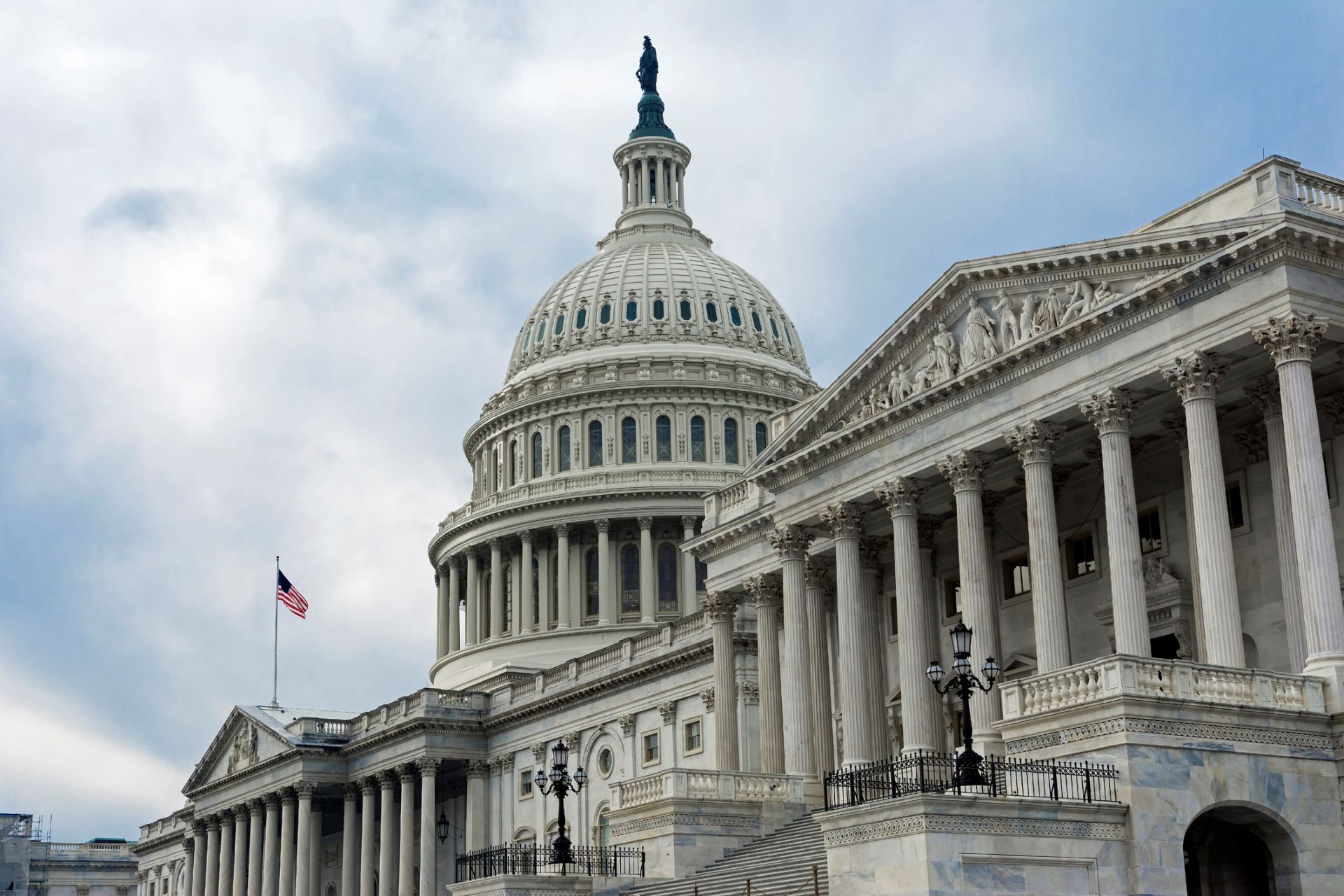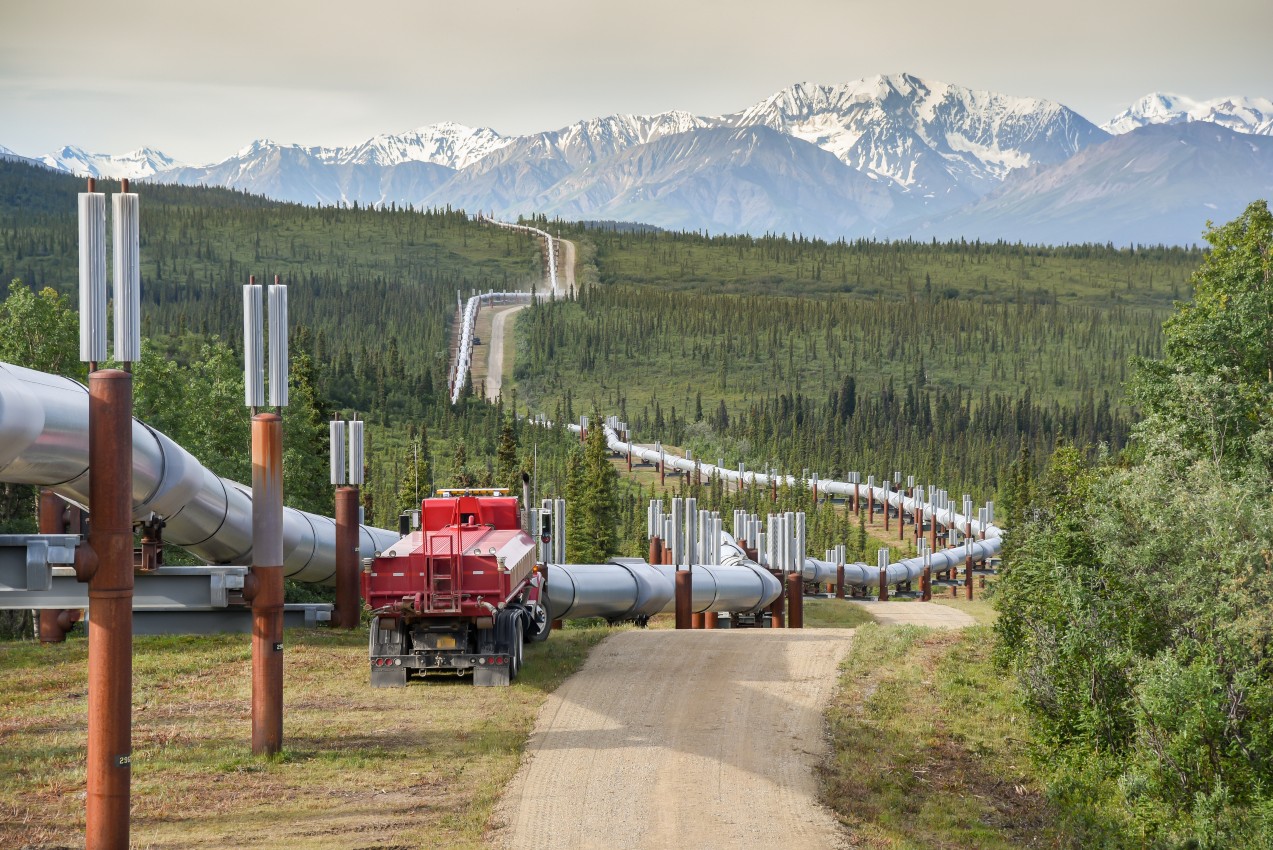Permitting reform could still rise from the ashes of 'dead on arrival' House GOP energy package

U.S. House Republicans last week passed a sweeping energy package with a long list of benefits to fossil fuel companies – more drilling and mining on federal land, bans on any restrictions on fracking, and measures that make it easier to sell oil and natural gas abroad.
With Democrats in control of the Senate and White House, most of those provisions won’t make it into law anytime soon. Senate Majority Leader Chuck Schumer labeled the package “dead-on-arrival” even before its passage. President Joe Biden also vowed to veto the bills if they makes it to his desk.
However, Schumer and other Senate leaders have signaled that they could be open to a narrower discussion on “permitting reform” to streamline the process of approving major energy projects such as pipelines, fuel export terminals, and electrical transmission lines. While no specifics have emerged yet, Schumer has said that “permitting reform is an essential step towards laying the foundation for a clean energy future,” according to E&E News.
A key proponent of such legislation is West Virginia Sen. Joe Manchin, a Democrat who repeatedly tried to pass legislation last year that would weaken environmental legislation to make it easier to push through large energy projects. The foremost example is the Mountain Valley Pipeline, a 308-mile natural gas pipeline from West Virginia to Virginia that’s only been partially completed because of repeated successful challenges by environmental groups.
The latest blow to the Mountain Valley Pipeline came April 3, when the Fourth Circuit Court of Appeals in Virginia ruled in favor of environmental groups that challenged the project’s stream crossing permits. In their appeal, the groups highlighted multiple violations during the pipeline’s construction that filled wetlands and streams with sediment.

In a statement reacting to the court’s decision, Manchin called it “infuriating” to see judges “once again side with activists who seem hell-bent on killing any fossil energy that will make our country energy independent and secure.”
A central piece of the House Republican energy legislation is the BUILDER Act, sponsored by Louisiana Rep. Garret Graves. The language would solidify changes to the National Environmental Policy Act proposed under the Trump Administration in 2020 that would make permitting easier for major energy projects.
The National Environmental Policy Act (NEPA) was signed into law in 1970 and requires federal agencies to assess how their proposed decisions would affect the environment. It covers permit applications before federal agencies, management decisions on federal lands (including military bases), and the construction of highways or other publicly owned facilities using federal dollars.
“NEPA is a bedrock environmental law that plays a critical role in keeping our communities and our environment healthy and safe,” Mahyar Sorour, director of the Sierra Club’s Beyond Fossil Fuels policy, in an email. “NEPA simply requires that the environment and public health are considered for major government actions, ensuring that the communities that would be affected the most by proposed infrastructure projects have input in the decision-making process.”
The 2020 rule enacted under the Trump Administration directed federal agencies to shorten the review times for projects under NEPA and make it more likely that agencies would issue a “finding of no significant impact” that would allow a project to proceed. But in April 2022, the Biden Administration rolled back many of the Trump-era rules, with pledges to introduce a second phase of NEPA changes that have not yet been proposed.
In their legislation, House Republicans sought to restore those Trump Administration provisions. If enacted, the BUILDER Act would give the Trump Administration’s proposed NEPA rule “the same force and effect of law as if enacted by an Act of Congress.”
Beyond that, the law would shorten the amount of time allowed by a federal agency to issue an environmental impact statement to two years and limit the statement’s length to 150 pages, though it would allow 300 pages for actions of “extraordinary complexity.” Environmental assessments issued for projects expected to have less significant impacts would be limited to 75 pages and would have to be issued within one year.
These changes would limit the information available to regulatory agencies and project developers, said Peter Anderson, Virginia policy director for Appalachian Voices, one of the groups that challenged the Mountain Valley Pipeline in court. Anderson described NEPA as an “information-forcing statute” whose purpose is to “get all the information on the table.”
“Why would you like to make a less-informed decision?” Anderson said. “If there’s millions or billions of dollars going into this and lots of people and land impacted, why would you like to make a decision with less information?”
The law would also limit the ability for environmental groups or affected residents to challenge a permitting decision in court. To do so, they would have to file a claim within 120 days of a final permit decision. Challengers would also be required to have previously submitted a public comment during the comment period that was “sufficiently detailed to put the agency on notice of the issue upon which the party seeks judicial review.”

The law has many similarities to the Energy Independence and Security Act of 2022 Manchin introduced late last year. However, it scrapped proposals in Manchin’s bill that would have required agencies to hold meetings with the developers of proposed energy projects seeking permits or with governors of states where projects are located. The new House bill also omitted a provision that would have blocked any court review of the Mountain Valley Pipeline.
Proponents of permitting reform have said that current NEPA rules are also being used to block wind and solar projects, along with transmission lines to connect more green energy to power grids. In a March 31 op-ed in The Hill, Republican senators Shelley Moore Capito of West Virginia and John Barrasso of Wyoming blamed “frivolous lawsuits” and “bureaucratic foot-dragging” for holding up energy projects. The op-ed cited a 2020 review by the Trump Administration’s Council on Environmental quality that found that the average time for the completion of an environmental impact statement is four and a half years.
“Environmental activists skillfully exploit America’s broken permitting process,” the senators wrote. “They even use their litigation as a selling point to raise huge sums of money.”
However, not all of those advocating for permitting reform are pro-fossil-fuels, like Senators Capito and Barrasso.
Some environmental advocates have also suggested that changes to NEPA and other laws are a needed step to implement the Biden Administration’s climate goals by connecting green energy projects to the grid more quickly. Citizens’ Climate Lobby is among those that have cited a recent study by the Lawrence Berkeley National Laboratory. This study found that, as of late 2022, a potential 1,250 gigawatts of zero-carbon electricity generating capacity is waiting for the construction of new transmission lines, including 947 gigawatts of solar and 300 gigawatts of wind energy. One gigawatt is enough to power approximately 200,000 homes during high-demand periods.
“The amount of new electric capacity in these queues is growing dramatically, with over 2,000 gigawatts (GW) of total generation and storage capacity now seeking connection to the grid (over 95% of which is for zero-carbon resources like solar, wind, and battery storage),” the Berkeley Labs study states. “However, most projects that apply for interconnection are ultimately withdrawn, and those that are built are taking longer on average to complete the required studies and become operational.”

Others have argued that weakening NEPA and other environmental laws allow more fossil fuel projects to proceed unchecked. Sorour, the Sierra Club policy director, said that “giving in to the fossil fuel industry’s demands for free rein to build more pipelines and export facilities under guise of supporting renewables is the last thing we should be doing.”
“Whatever the proposed project is – whether it’s a pipeline or a highway or a solar farm – it should be subject to the same commonsense review process,” Sorour said. “As much as corporate executives like to complain about not being able to build whatever, whenever, wherever they want, the reality is that all these laws require is review of the environmental impacts of projects and consultation with communities that would be most impacted.”
Environmentalists have also argued that permitting reform proponents are often dismissing the valid concerns of affected residents as coming from “NIMBYs” (an acronym for not-in-my-backyard).
“We need to constructively interrogate the reasons why opposition arises,” Western Environmental Law Center executive director Erik Schlenker-Goodrich wrote in a March 30 post on Medium. “To do that, we need to think like organizers: meet people where they are and take their values and concerns seriously.”
Lead photo: House Speaker Kevin McCarthy speaks alongside other House Republicans and energy workers during a press conference held after the House passed the Lower Energy Costs Act on March 30, 2023. (Francis Chung/POLITICO via AP Images)















